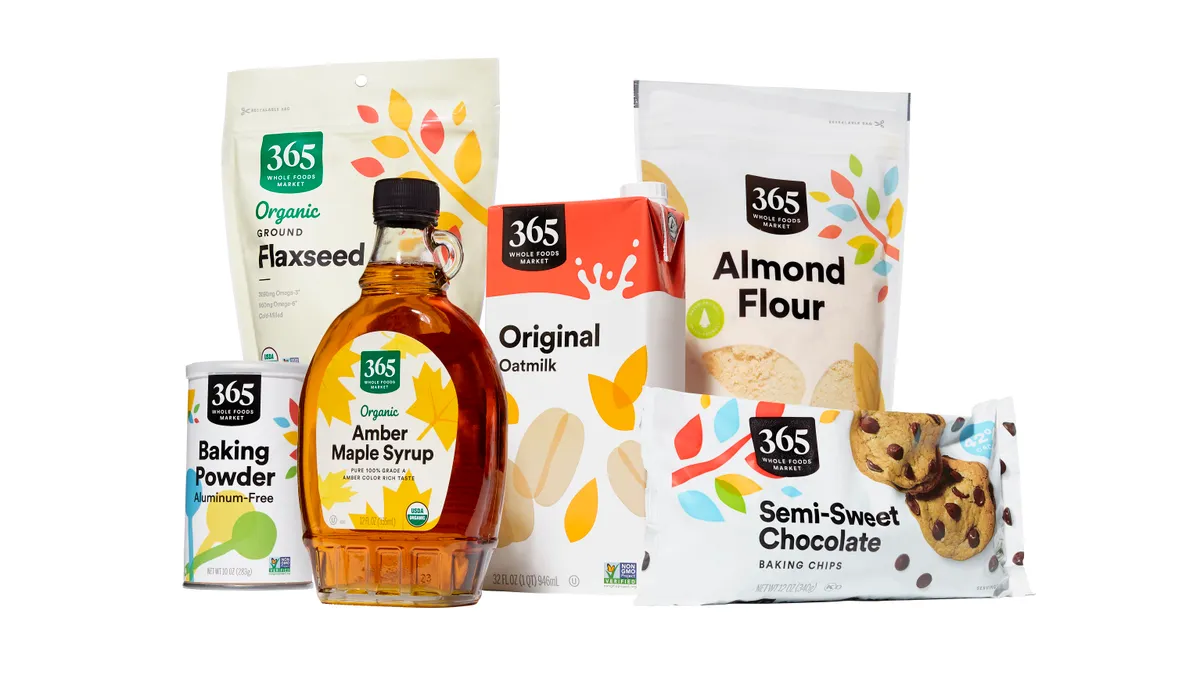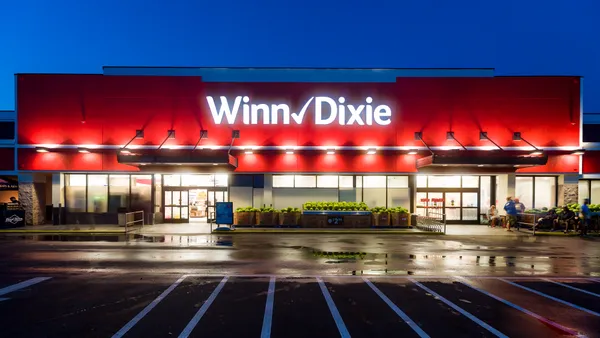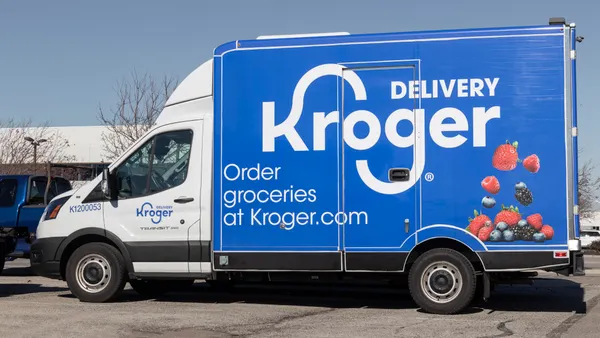Dive Brief:
- Almost all retailers are revisiting their assortments and supplier strategies for private brands because of the coronavirus pandemic, with a majority focusing on lower-price items and supporting at-home cooking, according to a report by the Food Industry Association (FMI).
- The report found that 93% of food retailers say private brands are either extremely or very important to their organizations. It recommends food retailers and manufacturers expand their private brand offerings, noting that roughly 83% of food retailers said fresh foods, like bakery and deli items, and boosting e-commerce strategies are big opportunities. Value-oriented items (77%) and supporting at-home cooking and meal prep (73%) are top areas private brand retailers said they plan to focus on.
- Recently, grocers have turned to refreshing or expanding private label offerings, like adding alcohol and plant-based alternatives, as consumers' perceptions of store brands shift.
Dive Insight:
The focus on value-priced private label items and at-home meal solutions reflects the impact of the pandemic on retailers' store-brand planning. And even though many products currently in the pipeline may not roll out until after a coronavirus vaccine is developed, companies like Kroger say they see foundational shifts in consumer spending and at-home eating that will last long-term.
Over the next two years, roughly one-third of retailers plan to significantly increase investments in private brands, while just over half said they are aiming for a moderate increase, with launching new products, offering clean-label products and utilizing consumer insights as main goals, the report found.
FMI’s report drew from several places, including sales and register data from IRI, FMI’s consumer survey data, an FMI survey of retailers and manufacturers and interviews with senior industry executives. FMI’s industry survey discovered that 72% of retailers and 53% of manufacturers are looking to streamline the number of SKUs they offer as pandemic buying has prompted them to focus on their fastest-moving goods. Sixty-nine percent of retailers may add more suppliers to diversify supply and 83% of retailers are examining strategies to grow their private brand offerings.
The report found that private brands surged at the start of the pandemic, as consumer demand shifted from foodservice to food retail and manufacturer brands faced out-of-stocks. Brand suppliers have regained their footing, but overall sales growth for private brands is still projected to reach between $15 billion to $20 billion for this year — a 0.6 share gain, according to IRI data. In 2019, private brands accounted for $81.7 billion in the grocery channel, with the top five food retailers dominating private brands’ growth from 2017 to 2019, according to IRI.
FMI expects private brand purchases to continue to grow, especially among millennials and people with annual incomes of $100,000 or more, noting that three in 10 shoppers in July — compared to 26% at the start of June — said they are buying more private brands than before the pandemic.
Food retailers looking to boost private brands face competition from dollar stores and pure-play e-commerce companies as well as challenges with improving their e-commerce strategies and improving private brands in fresh categories, FMI said.
E-commerce, especially home delivery and click-and-collect, presents grocers with new opportunities for private brands. FMI urges retailers to test their online ordering systems to make sure they can handle surges in demand, optimize packaging for last-mile delivery and focus on online branding.
Grocers have been expanding their private label offerings, with some, like Kroger, Trader Joe’s and Albertsons, adding plant-based options. Private brands in the beverage alcohol category has increased. Giant Food added a new line of private label wine, while BJ’s recently added premium spirits.
Other grocers have spruced up the image of their private labels recently, like Whole Foods updating its 365 brand and ShopRite giving its Wholesome Pantry lines a makeover.











